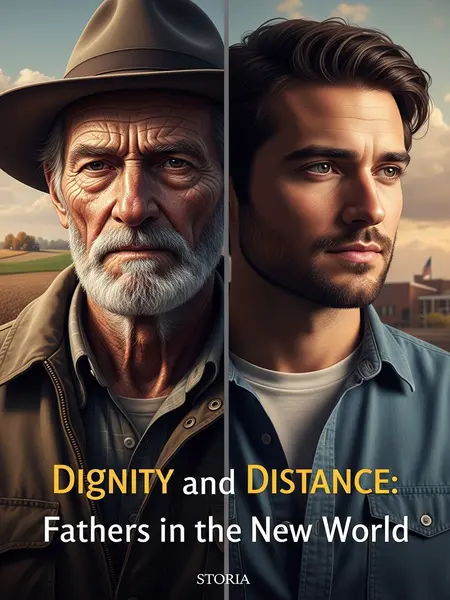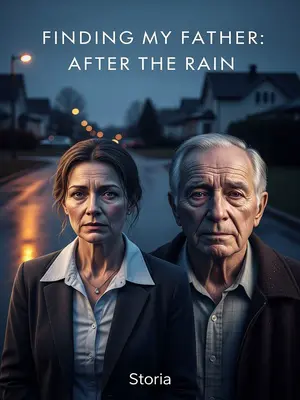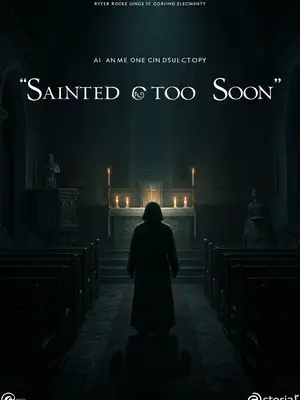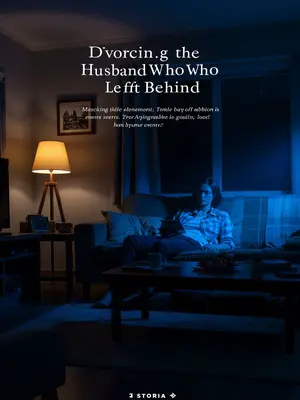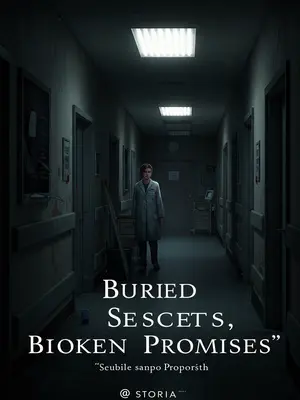Chapter 6: Oceans Apart
I remember standing in the kitchen, permission slip in hand, feeling the air go cold. His answer was final, no room for debate. I sulked, but I knew better than to argue.
After high school, I discussed with friends riding bikes to Colorado. I told Old Hank, and he said five words: “Absolutely not a chance.”
He didn’t even look up from his paper. The world was full of dangers, and he wasn’t about to let me go chasing after them. I chafed at the restrictions, but part of me understood.
When I filled out my college applications, he kept telling me, “You don’t know how good Ohio State is. So many people want in and can’t get in.”
He saw no reason to leave home when opportunity was right there. I saw it as limitation; he saw it as wisdom.
When I was a junior and wanted to apply for a PhD in the States, Old Hank said, “America isn’t so easy to get to.”
He worried about everything—cost, distance, the unknown. He’d built his life on caution, and he wanted the same for me. But I was determined to break free.
But the more he tried to keep me, the more I wanted to leave. Finally, one day he opened his eyes and found I was no longer in his circle.
It was inevitable. The harder he held on, the further I drifted.
I think he knew it, deep down. Maybe that’s why he never fought too hard.
In the end, I still went to the D.C. summer camp, with money from my mom; I rode my bike to Colorado, even though I later fell into a ditch outside Boulder and was covered in injuries; I ultimately applied to a university in New York, leaving my hometown; after college, I really got a full scholarship and have lived in the United States ever since.
Each step away was a small rebellion, a way of claiming my own life. Through it all, Old Hank watched from a distance, never saying much, but always there if I needed him.
Actually, he always knew that if I wanted to go, he couldn’t hold me. He subconsciously knew I would eventually go to a place he could never dream of reaching.
He watched me pack my bags, drive away, and never asked me to stay. Maybe he understood that the world was bigger than his circle, even if it scared him.
One day he was surprised to find that the dangerous world he imagined had become my carefree paradise.
I sent him postcards from places he’d only seen on TV—New York, D.C., the West Coast. He’d shake his head, mutter about "kids these days," but I could tell he was proud, even if he’d never say it.
At that moment, I completed my self-proving, and Old Hank finally left my life, becoming the father who watched over me in my hometown.
We settled into a new rhythm—him at home, me out in the world. The distance grew, but so did my appreciation for everything he’d given me.
Going to America
In 2003, after graduating from college, I went to the States for my PhD, full of passion. When I got to Washington, rented a place, finished my registration, and looked at the unfamiliar white world, I suddenly fell into panic and melancholy—I had no idea how I would survive the next six years in a foreign land.
I remember standing in my tiny apartment, cardboard boxes still unpacked, the city humming outside. The excitement faded fast, replaced by a loneliness I hadn’t expected. Everything was new, and I missed the comfort of home more than I cared to admit.
I remember just a couple days after arriving, one evening I lugged a pile of heavy groceries home from Safeway, closed the door, and faced the four walls alone. Outside, I could hear the laughter of Americans. I collapsed in a chair, and a deep, twilight-like loneliness enveloped me.
I sat there, staring at the ceiling, wondering if I’d made a huge mistake. The city was alive, but I felt invisible, adrift in a sea of strangers.
I mechanically turned on the computer and suddenly saw a friend request flashing on MSN Messenger, the name was “Old Hank.”
It felt like a lifeline—proof that, no matter how far I’d gone, home was still there, waiting for me. My heart skipped a beat.
I quickly accepted, and Old Hank was actually online. After a long time, he typed a few words: “I am your dad.”
He’d never used a computer before, never had much patience for technology. But there he was, reaching across the digital divide, awkward but determined.
My heart warmed, and I quickly replied: “Dad, you know how to use MSN!”
It was a miracle, honestly. I pictured him hunched over the keyboard, pecking at the keys with two fingers, squinting at the screen. It made me smile.
After a while, he finally responded, sending a big laughing emoji.
That was an expression Old Hank would never make in real life, but I believe it was how he felt inside when he saw me. I stared at that smiley face for a long time, and when I came to, I realized I was in tears.
I’d never seen him laugh like that—not in person, anyway. Somehow, the silly yellow face on the screen said more than words ever could. I wiped my eyes, embarrassed by my own emotion.
As a child, whenever I was wronged outside, I would hold it in until I got home, but as soon as I saw Old Hank, I would burst into tears.
He was my safe place, even when I didn’t realize it. Growing up didn’t change that. Some part of me was still that kid, looking for comfort in the familiar.
Turns out growing up is the same. I just looked at Old Hank’s bright avatar and cried and cried, venting all my pent-up feelings.
The tears came out of nowhere, all the loneliness and fear washing over me. It was a relief, in a way, to let it out—knowing he was there, even if just as a glowing dot on my screen.
But Old Hank would never know.
I never told him. I just wiped my eyes, typed a quick reply, and pretended everything was fine. That’s how we did things—always a little bit hidden, always holding something back.
After that, I often saw Old Hank on MSN. He didn’t say much, often just sending emojis, occasionally sending me news about America.
He became a silent companion, always online, always watching. Sometimes he’d send a news link—something about Detroit, or the auto industry. It was his way of staying connected.
Every time I saw his avatar lit up, I knew he was looking at mine too. We silently kept each other company through our online presence.
It was a strange kind of comfort, knowing he was out there, living his life while I lived mine. The distance felt smaller, somehow.
During my years studying in America, whenever I worked at the computer, Old Hank accompanied me in this way, silently existing on the other side of the country.
It became our new ritual. No words needed—just the quiet reassurance that someone was out there, thinking of you.
Occasionally, Old Hank would send text, always carefully worded pearls of wisdom. On my birthday, I opened MSN and found a formal, old-fashioned message:
